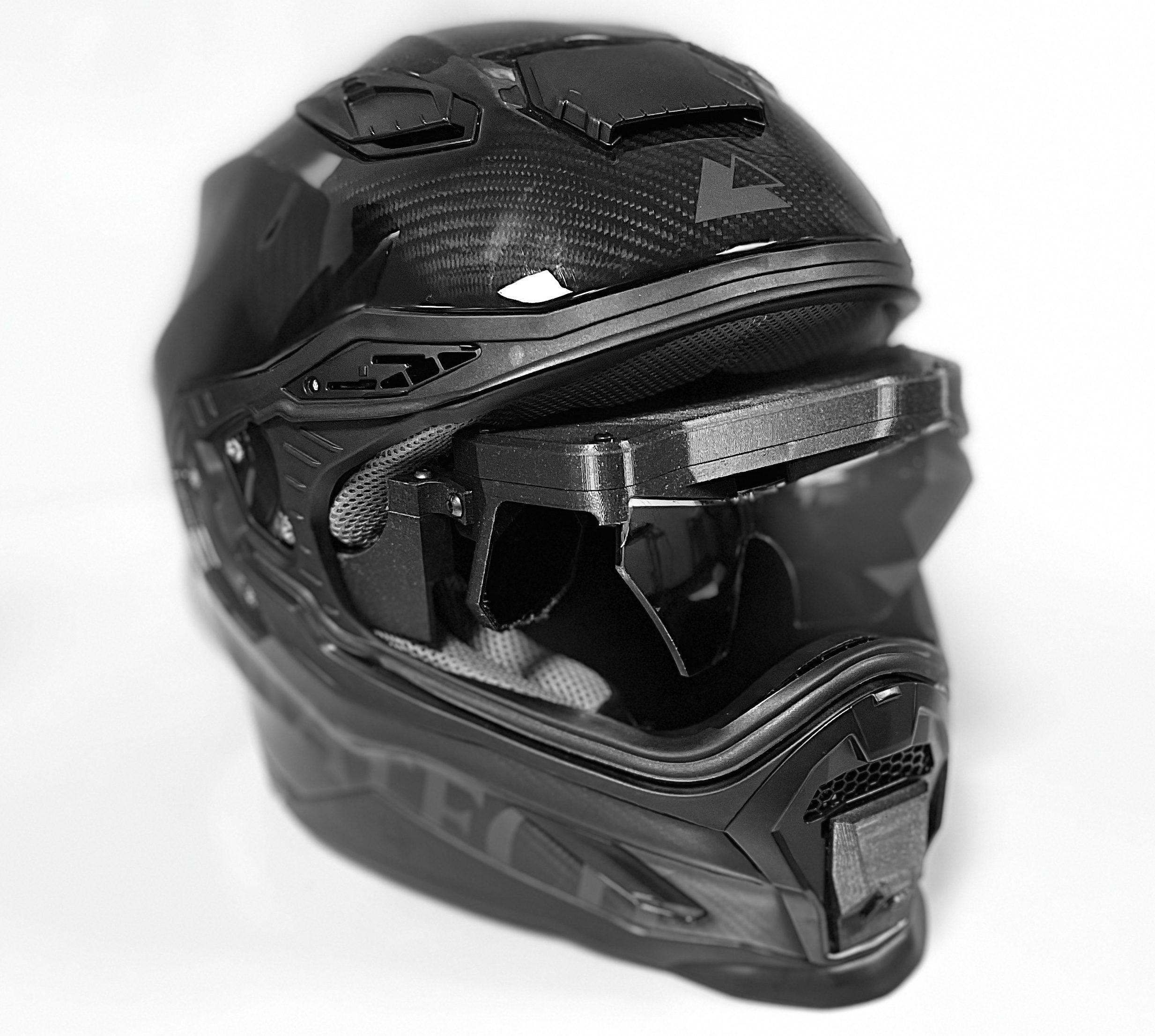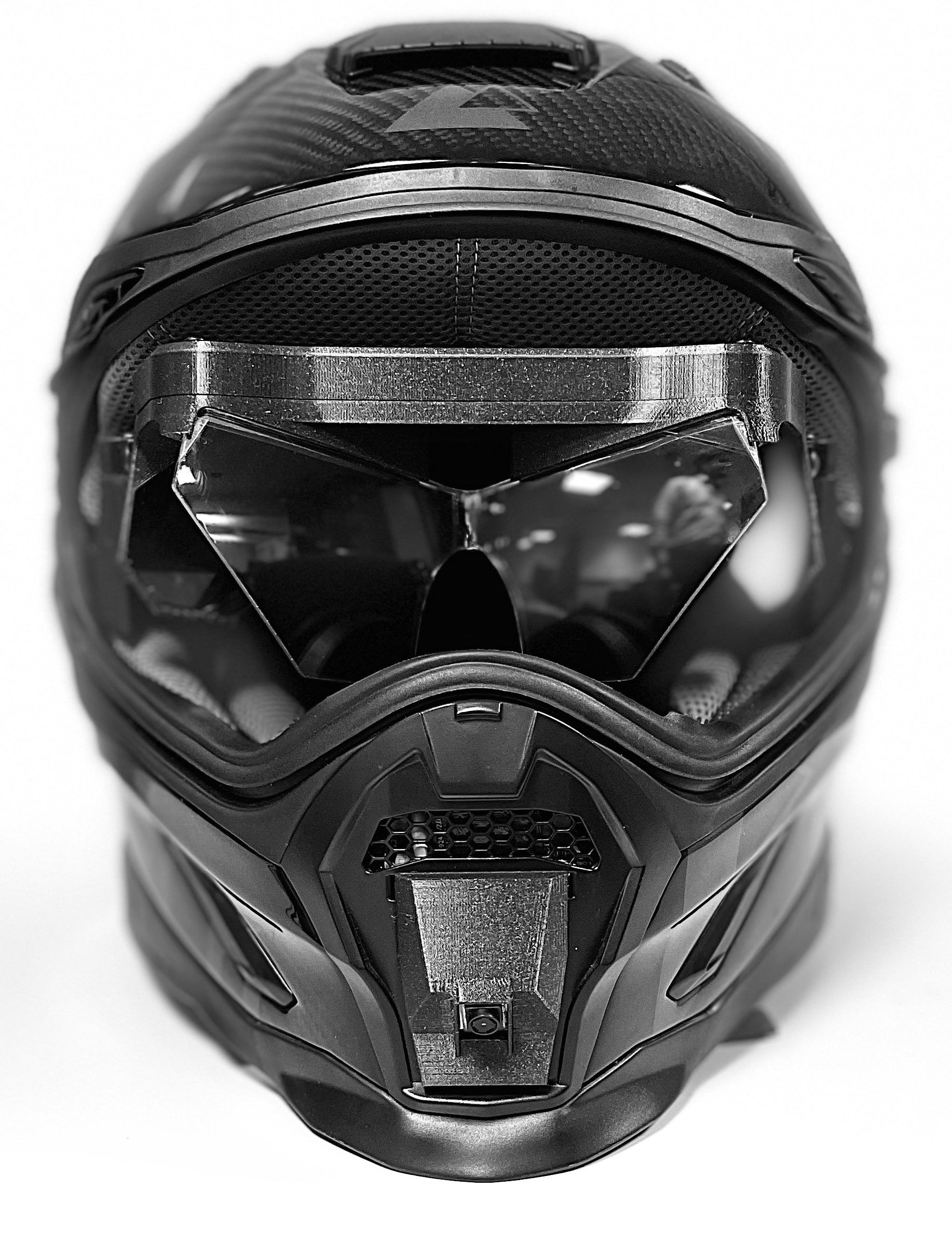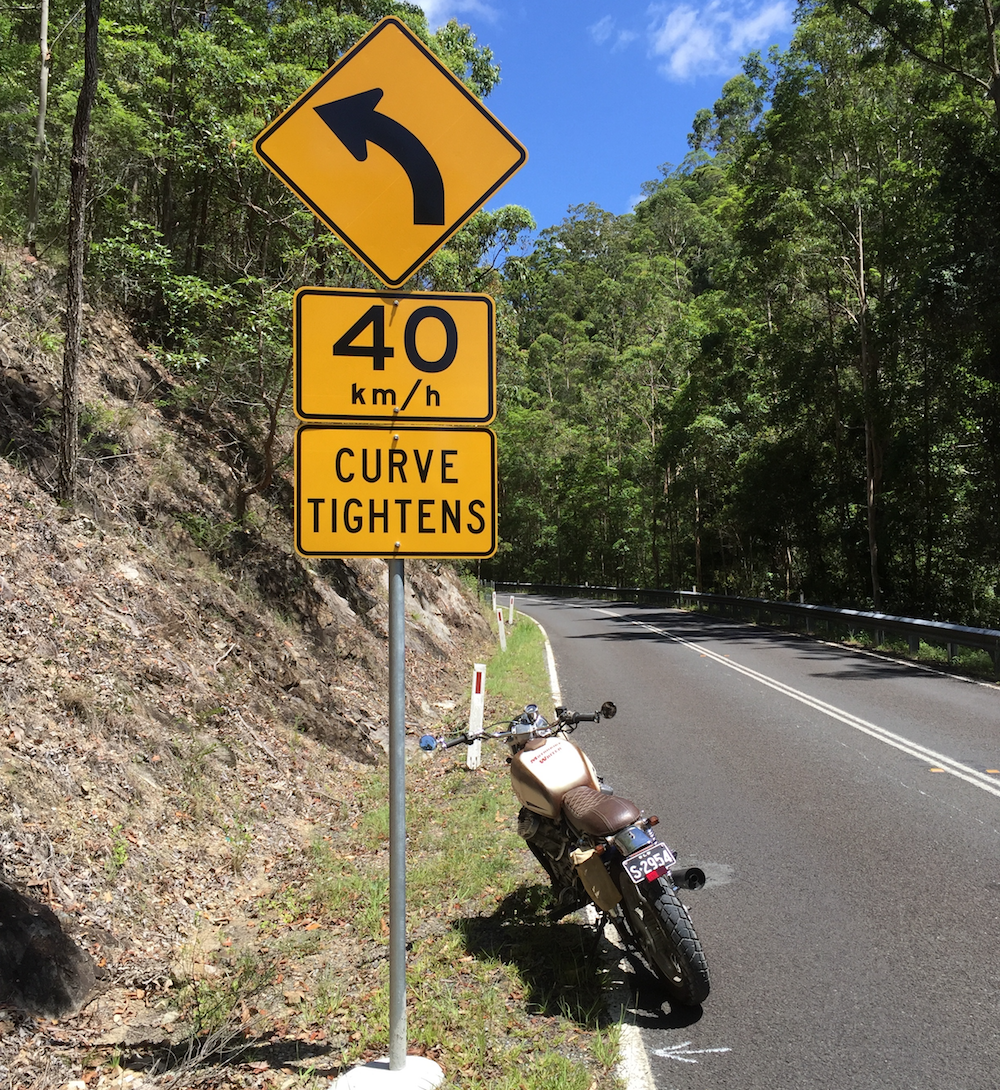Soon your motorcycle and helmet could warn you if you have chosen the right apex and speed for a corner, regardless of the posted advisory speed.
European researchers Alex Liniger and Simon Hecker have developed a prototype system based on their ARAS paper and have founded a company, Aegis Rider AG, to bring the technology to market.
“We are currently in the late prototyping stage and have a working system deployed on our test motorcycle,” says Simon.
“We decided to combine the ARAS technology presented in the paper with augmented reality (AR) and built an AR helmet, in order to facilitate better communication with the rider.”
He says roadside signs with arrows and advisory speeds are not good enough considering that nearly a fifth of all motorcycle accidents and 15% of fatalities are caused by riders taking corners too quickly or sharply.
Instead of road signs, their system uses the geometry off the road ahead.
“What we designed is a curve warning system for motorbikes which can alert the rider when they are approaching a curve too fast,” Simon says.
“The system performs this task by first calculating the roll angle and the position within the lane of the motorcycle, based on a camera mounted on the front of the motorbike.
“Second, the system queries information about the road ahead from so-called HD maps, which are precise maps for navigation with additional information, such as the road geometry (curvature, inclination …) and road attribute information (speed limits …).
“With this information, we use a motion-planning algorithm to plan the optimal path and consequent manoeuvre of the motorcycle for the next 200m ahead. This path can be seen as the ideal manoeuvre to ride the curve and includes safety margins.”
Their system can detect if the rider is taking the wrong line and is going too fast for the corner which is especially important on blind corners.
It alerts the rider to apply the brakes even if the road side speed limit has not changed.
“The main advantage of the proposed system is that by using an ideal robotic rider which can plan into the future, we can warn the rider to slow down before something happens,”Simon says.
“This stands in contrast to the current safety system such as ABS and EBS, which only take action when the rider has already crossed the limit of handling.”
Their system is designed to only warn the rider and not intervene.
“It is actually less invasive than current safety systems and helps to keep the riding experience pure,” Simon says.
Their research paper only shows preliminary results and further work is necessary to allow this system to run real-time on a motorcycle.
So they have developed a prototype to tests their theories.
The warning could be conveyed to the rider either visually on the bike’s instruments, through haptic pads (vibrations in the bars or seat) or through a head-up display in the rider’s helmet. The prototype uses the latter.
The researchers come from ETH Zurich and KU Leuven, the latter being the Belgian consultancy to issue the Transport & Mobility study that found if 10% of all private cars were replaced by motorcycles, it would reduce traffic congestion by 40%.)
Their research paper so far only shows preliminary results and they say further work is necessary to allow this system to run real-time on a motorcycle.





